David Hartley MP
The British Founding Father of the United States of America
D
avid Hartley, Member of Parliament for Kingston upon Hull, occupies a very important place in the story of American independence. Though he served in the British government during the American Revolutionary War, Hartley was a principled and outspoken opponent of the conflict, advocating for peace, liberty, and reconciliation when few others in Parliament dared to do so.
His role in signing the Treaty of Paris in 1783, alongside American luminaries such as Benjamin Franklin, John Adams (Second President of the United States) , and John Jay, marks him out as the lone British figure at the negotiating table—a symbol of peaceful resolution and mutual recognition between two nations. For this reason, Hartley is sometimes referred to as the "British Founding Father" of the United States.
Hartley’s political career was marked by his consistent opposition to the war against the American colonies. As a Whig MP and a disciple of Enlightenment thought, he argued fervently against military coercion and instead championed negotiation and respect for colonial rights. His parliamentary speeches echoed the same values found in the American Declaration of Independence—self-governance, liberty, and justice. Hartley believed the colonists were entitled to the same rights as British citizens and that the war was not only unjust but destructive to the future of both nations.
Hartley’s opposition to the war brought him into contact with leading American revolutionaries, most notably Benjamin Franklin. The two developed a close friendship based on mutual respect and shared Enlightenment ideals. Franklin, ever pragmatic and diplomatic, found in Hartley a rare British ally who genuinely sought peace and reconciliation rather than domination. Their personal correspondence reflects not only warmth but a deep philosophical kinship.
In 1776, Thomas Jefferson—another architect of American independence—sent Hartley a draft of the Declaration of Independence. That gesture speaks volumes: the American founders recognized Hartley as someone who, despite being on the other side of the political divide, believed in the legitimacy of their cause. Hartley, for his part, praised the document's principles, even as he mourned the failure of the British government to prevent the rupture that made it necessary.
David Hartley’s contributions to American independence are not found on battlefields or in revolutionary pamphlets, but in his principled advocacy, his transatlantic friendships, and his role in securing peace. In a time of ideological rigidity and imperial arrogance, Hartley stood out as a rare figure who understood that lasting power lies not in domination, but in mutual respect and shared values.
In this light, David Hartley is not only recognised as a British politician, but as a founding figure in the American story—one who, from across the Atlantic, helped form a new republic by defending its right to exist and securing the peace that made it possible. His legacy is a reminder that the founding of the United States was not only an American endeavour, but also a moment shaped by conscience, diplomacy, and global Enlightenment thought.
Perhaps the clearest evidence of Hartley's foundational role in the creation of the United States is his participation in the Treaty of Paris negotiations. As the sole British signatory of the treaty that officially ended the Revolutionary War, Hartley stood opposite Franklin, Adams, and Jay—not as an enemy, but as a partner in peace. On September 3, 1783, the treaty was signed, and with it, Great Britain formally recognized the independence of the United States.
Hartley was the first to sign the Treaty. His signature on the treaty is more than a legal formality. It is the culmination of his steadfast belief in diplomacy over war, and his enduring commitment to the ideals that gave birth to a new nation. While others sought to crush the rebellion, Hartley sought to understand it, and ultimately to help bring it to a just conclusion. The negotiations took place and the Treaty was signed at David Hartley’s residence in Paris ; the Hotel d’ York , 56 Rue Jacob. Hartley was acting on behalf of King George III and the British Government.
2026 marks the 250th anniversary of the Declaration of Independence. To mark the occasion, the family has commissioned Andrew Gow to paint a new portrait depicting Benjamin Franklin, John Adams, John Jay and David Hartley signing the Treaty of Paris. Benjamin West, the celebrated American British artist, painted a contemporary portrait which David Hartley refused to sit for. The new portrait will be unveiled in 2026.
Gallery
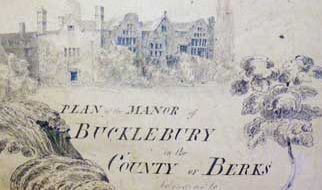
Cartouche
Original Bucklebury Cartouche dated 1794 to the Rev. Winchcombe Henry Howard Hartley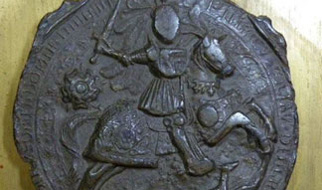
King Henry VIII Great Seal
The great sealof King Henry VIII used to bind historical documents related to Bucklebury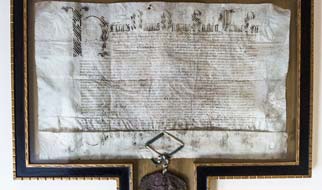
Grant of Bucklebury Manor
The grant of the manor dated 1540 featuring the seal of King Henry VIII.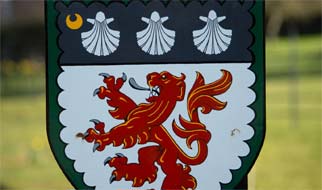
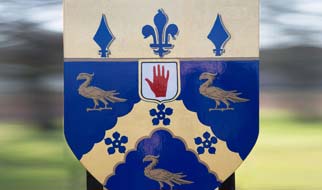
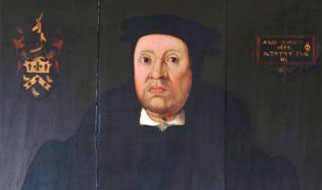
Bucklebury History
Over the last 900 years there have been two owners of the Bucklebury Estate; Reading Abbey and the Winchcombe Family...
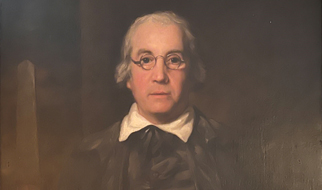
David Hartley MP
The Member of Parliament for Kingston upon Hull, David Hartley MP occupies a very important place in the story of American independence...
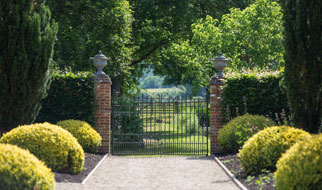
The Estate
The Bucklebury Estate is the oldest landed Estate in Berkshire and one of the oldest Estate’s in the country...
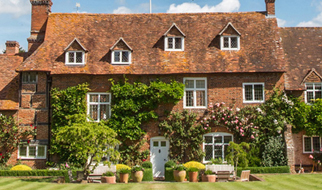
Bucklebury House
King Henry I originally bestowed the Manor of Bucklebury on the monks of Reading Abbey, who created fishponds in the grounds...
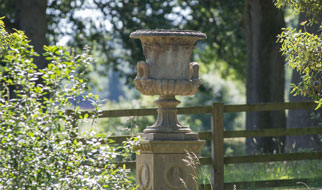
The Gardens
The Benedictine monks of Reading Abbey set out the first gardens at Bucklebury in the twelfth century, creating an elaborate system of seven fishponds...
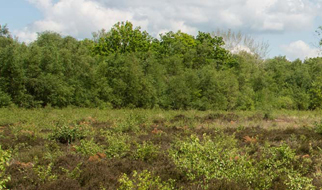
Bucklebury Common
Bucklebury Common is one of the largest Commons in Southern England. It is privately owned by the Bucklebury Estate...







